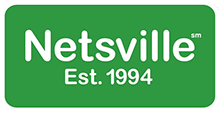Influencer marketing has become a very popular method of marketing in today’s world, especially with the rise of social media. But why isn’t it working for you? You may be focusing on the wrong influencers. Find out more with this articles from Forbes:
No matter what your brand sells or who you sell to, there’s not a marketer alive who hasn’t struggled with one (or all) of the following challenges:
• Not having enough content to support all your audiences and channels
• Too much noise to break through and grab consumers’ attention
• An inability to cultivate an authentic and trusted brand identity
So, when influencer marketing came on the scene, billing itself as the solution to all of these challenges — arguably, the biggest obstacles facing marketers today — it’s no surprise brands far and wide jumped on the social influencer bandwagon.
Marketers were quick to dedicate an increasing amount of budget, time and resources to build influencer campaigns, contract online personalities and procure influencer platforms to help find and manage this new strategic priority.
The problem? These never were and still aren’t the influencers marketers should be focusing on.
The Real Problem With Influencer Marketing
“Influencers,” as we think of them today, are closer to reality TV stars than they are to your average consumer. While their 5,000-100,000 or more followers may provide the attention factor marketers seek, it turns out they’re not as influential as you’d think.
A recent report by my company, Stackla, revealed that only 23% of people believe content from celebrities and influencers is influential. Alternatively, 60% say content from friends or family influences their purchasing decisions.
As an industry, we’ve lost sight of the fact that social influencers are inherently inauthentic. Even if they’re true fans of your brand, the content they’re creating isn’t earned; it’s just a modern form of paid advertising and content creation.
Influencer marketing has become the social media equivalent of native advertising, and from my perspective, the impact is similar: incrementally improving soft metrics like awareness and engagement while failing to directly impact hard metrics like conversions and sales at scale.
The Association of National Advertisers (ANA) found that, while 75% of marketers currently employ influencer marketing activities, only 36% consider those efforts effective and 19% actually admitted they are “ineffective.”
Although the degree of influencer efficacy varies depending on the industry and marketing objectives, an epidemic of fake followers has undoubtedly plagued the entire influencer industry.
The prevalence of social bots and the purchase of fake followers has sowed mistrust among consumers and brands alike. On the consumer side, how can people trust someone is as credible and popular as their number of followers implies if there is a high probability those numbers are artificially inflated? And on the brand side, any reach, impressions or engagement reported by influencers leveraging fake or bot accounts are rendered fraudulent and essentially useless.
Earlier this year, Unilever made headlines by taking a vocal stance against the issue of influencer fraud when their chief marketing officer, Keith Weed, called for “urgent action” to “rebuild trust before it’s gone forever.”
Making a public commitment to stop working with influencers who buy followers, Weed stated, “The market gets undermined if people don’t trust the amount of followers someone has … I think trust is such an important part in brand and marketing. A brand without trust is just a product, the difference between the two is trust. We want to be able to work in trusted environments and that includes influencers.”
Read More at Forbes
Based in Rochester, New York, Netsville is an Internet Property Management company specializing in managing the Digital Marketing, Technical, and Business Solutions for our customers since 1994. For more information, please click here.




